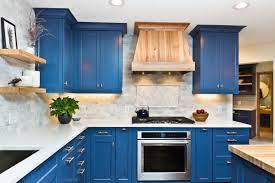In recent years, the demand for eco-friendly and sustainable home products has been on the rise, and kitchen cabinets are no exception. As homeowners in Newmarket and Aurora seek to make environmentally responsible choices, eco-friendly kitchen cabinets have become a popular choice for those looking to reduce their environmental footprint while adding beauty and functionality to their homes. In this article, we will explore sustainable options for kitchen cabinets in Newmarket and Aurora, and how they can elevate your home while contributing to a more sustainable lifestyle.
- Solid Wood Cabinets Solid wood cabinets are a classic and timeless option for kitchen cabinets that are also eco-friendly. Wood is a renewable resource when harvested responsibly, and solid wood cabinets are typically made from sustainably harvested wood, such as bamboo, maple, or oak. These types of wood are known for their durability and strength, making them ideal for kitchen cabinets that will withstand the test of time. Opting for solid wood cabinets from reputable manufacturers that follow responsible forestry practices can ensure that your cabinets are not contributing to deforestation and environmental degradation.
- Bamboo Cabinets Bamboo has gained popularity as a sustainable alternative to traditional hardwoods for kitchen cabinets. Bamboo is a fast-growing grass that reaches maturity in as little as 5 years, making it a highly renewable and sustainable option. It requires minimal fertilizers, pesticides, and water, making it a more environmentally friendly choice compared to other woods. Bamboo cabinets are known for their unique and exotic appearance, with a distinct grain pattern that adds a touch of natural beauty to any kitchen. They are also durable and resistant to moisture, making them suitable for use in the kitchen.
- Recycled Wood Cabinets Another eco-friendly option for kitchen cabinets is those made from recycled wood. Recycled wood cabinets are made from reclaimed or salvaged wood from old barns, buildings, or other sources, reducing the demand for new wood and minimizing waste. Using reclaimed wood for cabinets not only helps to preserve natural resources but also adds character and uniqueness to your kitchen as each piece of wood has its own history and story. Many reclaimed wood cabinets feature beautiful weathered textures, knots, and natural markings that add a rustic and charming appeal to any kitchen.
- Low-VOC Cabinets Volatile Organic Compounds (VOCs) are chemicals that are released from many conventional building materials, including some types of kitchen cabinets, and can contribute to indoor air pollution. Low-VOC cabinets are made from materials that emit lower levels of these harmful chemicals, making them a healthier and more eco-friendly option for your kitchen. Look for cabinets that are certified by organizations such as Green guard or the Forest Stewardship Council (FSC), which ensure that the cabinets meet strict environmental and health standards.
- Water-Based Finishes The finishes applied to kitchen cabinets can also impact their environmental impact. Traditional finishes, such as oil-based or solvent-based finishes, often contain high levels of VOCs and other harmful chemicals. Water-based finishes, on the other hand, are more eco-friendly as they emit lower levels of VOCs and are generally considered safer for both the environment and human health. Water-based finishes are available in a wide range of colors and finishes, allowing you to achieve the desired look for your kitchen cabinets without compromising on sustainability.
- Formaldehyde-Free Cabinets Formaldehyde is a common chemical used in the production of furniture and can be emitted from certain types of kitchen cabinets, contributing to indoor air pollution. Formaldehyde-free cabinets are made without the use of formaldehyde-based adhesives or finishes, making them a more environmentally friendly option for your kitchen. Look for cabinets that are certified as formaldehyde-free, such as those certified by the California Air Resources Board (CARB) or other recognized organizations.
